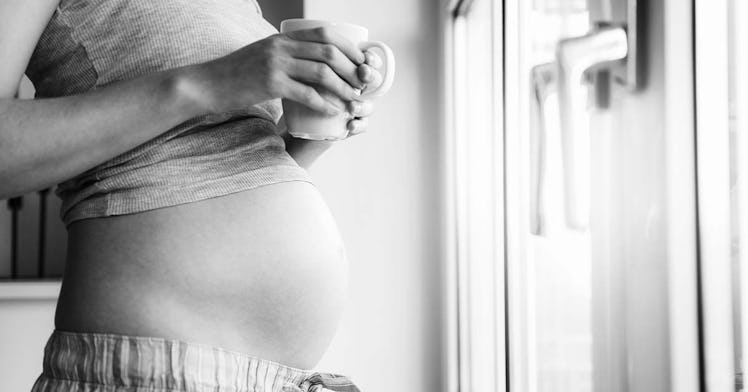Study: Drinking Caffeine While Pregnant Worse For Kids Than Once Thought
New research suggests that it may be time to cut out all caffeine consumption during pregnancy... and we are sorry to report it.

Can you consume that cup of joe during pregnancy? New research suggests that it may be better not to — in an unfortunate bit of news that probably nobody wants to hear.
There can be a lot of conflicting and confusing advice about the safety of caffeine consumption during pregnancy. Some research suggests that a small amount each day is OK, while other research points to erring on the side of caution and abstaining from any and all caffeine intake. But new findings from the University of Rochester Medical Center are now suggesting that going cold turkey from coffees, caffeinated teas, and energy drinks may be an important step towards preventing behavioral problems in kids later in life. The study says that drinking caffeine in utero may affect some crucial brain pathways in the fetus which could ultimately lead to behavioral issues.
According to John Foxe, the principal investigator of the Adolescent Brain Cognitive Development Study and director of the Del Monte Institute for Neuroscience, “These are sort of small effects and it’s not causing horrendous psychiatric conditions, but it is causing minimal but noticeable behavioral issues that should make us consider long term effects of caffeine intake during pregnancy.” Foxe added, “I suppose the outcome of this study will be a recommendation that any caffeine during pregnancy is probably not such a good idea,” as per EurekAlert!. In the statement, it does sound a little bit like he’s hesitant to be the bearer of bad news, which we totally get — coffee is king. But the research should at least be considered for moms who are trying to get pregnant. The research did not point to an overwhelming change in kids’ brains, but it did find symptoms of attention difficulties, behavioral issues, and hyperactivity in the kids studied.
Researchers analyzed brain scans from 9,000 nine and ten-year-olds and found changes in the white matter tracks which form connections among different regions of the brain in the children whose mothers said that they consumed caffeine during pregnancy. And although the study relied on mothers’ reported caffeine intake, which could be less reliable than measuring their actual consumption during pregnancy, the findings offer a potentially intriguing insight into how drinking coffee may alter kids’ behavior and brains as they develop.
Zachary Christensen, the author of the paper published in the journal Neuropharmacology and a M.D./Ph.D. candidate in the school’s Medical Science Training Program said, “What makes this unique is that we have a biological pathway that looks different when you consume caffeine through pregnancy.” Christensen continued, “Previous studies have shown that children perform differently on IQ tests, or they have different psychopathology, but that could also be related to demographics, so it’s hard to parse that out until you have something like a biomarker.”
So if you’re planning on getting pregnant or are currently pregnant, it could be time to cut down or cut out caffeine altogether. This new research, while it does rely on self-reported caffeine intake, which is a bit of a weakness, but should give some parents pause when it comes to picking up that morning coffee. “This gives us a place to start future research to try to learn exactly when the change is occurring in the brain,” says Christensen.
This article was originally published on